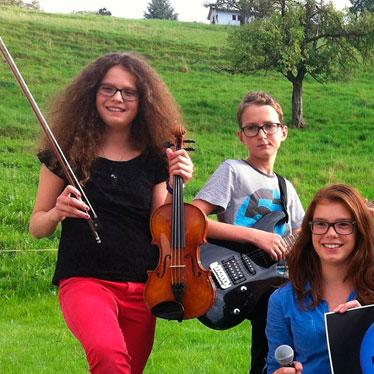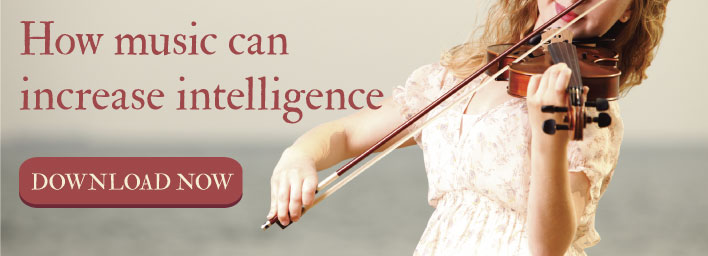Can Playing A Musical Instrument Help My Autistic Child?

If your child has been diagnosed within the autism spectrum, then you know first-hand that discovering new and effective therapies to aid development can help facilitate the social, verbal, and physical well-being of your special needs child. But, did you know that learning a musical instrument can help an autistic child achieve those goals by enhancing attention, behavior, and cognitive development?
The American Music Therapy Association has compiled a comprehensive list of the various studies that have been performed within the last few years concerning the benefits of musical instruments helping an autistic child reach their full potential. Indeed, the strength of the evidence is overwhelming regarding the ability that musical instruction has on the educational goals of special needs children.
All of the following information was adopted from the AMTA’s recent Research and Evidence Based Practice Support document on autism spectrum disorders, and the International Conference on Music Perception and Cognition proceedings concerning the effects of music therapy on children with disabilities.
Why It Works
Music comprehension is inherently processed by both hemispheres of the brain—an important factor for stimulating cognitive functions related to speech and language skills—and it’s easy for anyone to find a style that he or she enjoys. Moreover, children with a diagnosis on the autism spectrum often display increased interest and responses to music, which enables musical instruction to help an autistic child positively respond to other therapies.
Verbalization and Language Goals
Self-expression is an essential need that autistic children struggle with, but recent studies have shown that therapy, which includes learning a musical instrument, can help an autistic child, especially if begun early, develop verbal expression. In addition, it can provide autistic individuals with a non-verbal, communicative outlet, which allows the individual to express him or herself.
Learning a musical instrument, such as the violin, in relation to a music therapy treatment program, can also help an autistic child appropriate and identify his or her emotions productively. Studies have shown that CRASS (Checklist of Communicative Responses/Acts Score Sheet) measurements reveled significant gains for autistic children who participated in music therapy, either as active therapy, such as learning to play a musical instrument, or in basic techniques, which involve musical motivation, relaxation, and success-oriented opportunities for achievement.
Social Skills/Goals
Because it is enjoyable, music instruction can help stimulate an increased attention span and interpersonal timing, which is necessary for communication. When an autistic child learns through music therapy, the natural reciprocity and timing of the melodies, rhythms, and order of the composition enhances problem solving skills, greeting others, and engaging in play.
In fact, goal-attainment was found to be high in developing social skills and other interactions for autistic children who participated in music therapy.
Educational and Motor Skills Development
Advantages to active music therapy for autistic children and adults, such as learning to play the violin or another musical instrument, involves a heightened ability to learn and retain information. Studies have shown that not only can it improve the symptoms of autism, but it can also improve motor-skills.
AMTA research has established that music therapy sessions, which have been delivered in accordance with standards of practice for autistic children and adults exhibit the outcomes of:
- Increased attention
- Decreased self-stimulation
- Improved cognitive functions
- Increased socialization
- Successful/Safe self-expression
- Behavioral improvements
- Enhanced auditory processing
- Decreased agitation
- Improved verbal skills
- And enhanced sensory-motor skills
A musical instrument helps autistic children by offering them a healthy medium through which they can express themselves and interact productively with the world around them. To find a list of qualified therapists near you, visit the AMTA website for more information. Your child can blossom by learning to play a musical instrument, and the therapy involved in the practice can help enhance any additional treatments.


